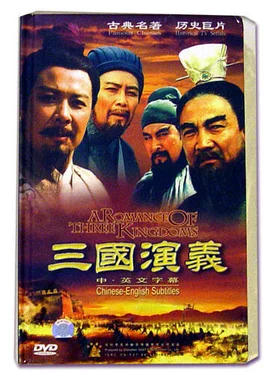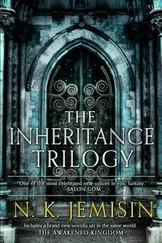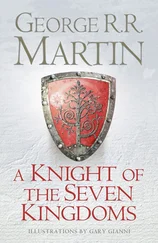"In the early days three groups of divinities were recognized--those of the heaven, the earth, and human. Besides these, ancestral worship was largely practiced. Various kinds of sacrifices were offered according to strictly enforced rituals at appointed times. Oracles were consulted before even the smallest undertakings." (Faber's " China in the Light of History.")
The belief in astrology, fortune telling, and dreams was almost universal; but by the time of the Spring and Autumn Classic, considerable intellectual improvements had been made. "The nation that listens to human is bound to rise; that which listens to gods is doomed to ruin." "The will of heaven is far off, but that of human near; how can one claim knowledge of that which is beyond one's reach?"
These quotations suffice to show the intellectual tendency of the time. The thought thus expressed was later greatly magnified by Laozi (or Laotze) in his famous Daode Jing (or Tao Te Ching, or The Way and Power Classic).
5.5.b. Taoism (Daoism):"Tao probably means impersonal Nature which permeates all things, and from which all things are evolved. According to the teaching of Laozi, true peace comes from ceasing to strive and by living in harmony with the leadings of 'Tao.' The cause of disorder in the world is the development of what is artificial and unnatural, and the only remedy is a return to 'Tao.'" (Pott's "A Sketch of Chinese History.")
His philosophy has been thoroughly understood by few, as it is beyond the comprehension of the average Chinese. Tradition makes Laozi a librarian of the royal court of Zhou. After the completion of his philosophical work, he retired to an unknown place, leaving the all-important reform movement to be perfected by Confucius.
5.5.c. Confucius:Confucius was born 551 BC in the feudal state of Lu. At fifteen his mind was set on learning; and at thirty, he stood firm in his convictions. In his twenty-second year, he began his career as a teacher.
In 501 BC, Duke Ding of Lu made him minister of justice and acting prime minister. In the latter capacity, he accompanied Duke Ding to an interview that had been arranged with the chief of Qi. He advocated the policy that the only way to maintain peace is to be prepared for war, and at his request the Duke's retinue included two generals. The return of certain tracts of land, which had been occupied by Qi, crowned his diplomatic effort.
Qi became jealous of Lu's prosperity, and corrupted the Duke by a present of beautiful courtesans. Confucius then left Lu to seek employment at the courts of other nobles. He traveled from state to state but to no avail. At times his life was in danger. Seeing no further hope for himself, he returned to Lu and spent his last days in literary work. He died in 479 BC. Since his death, the world has come to understand his true worth.
5.5.d. Age of Darkness:It must be borne in mind that the states through which Confucius traveled were shrouded in ignorance. The moral standard of the people was low: Between the states there were intrigues of all kinds. Polygamy among the nobles gave rise to endless trouble. Monarchs often lost their lives at the hands of their own children, and murder was frequently resorted to by an ambitious prince to put his brothers or half-brothers out of the way. A famous cook, in order to obtain favor with his sovereign, killed his own son and prepared his flesh as food. It was not uncommon for the ruler of a stronger state to wage war against a weaker one for the purpose of capturing a beautiful queen. If any reform was needed in a world of disorder and crimes of this kind, it certainly was in the matter of morality.
5.5.e. Confucianism:Confucius never sought to explain anything new, but to reinstate the old in a pure form. "He sought to guide his fellows by holding up to them the wisdom and virtue of the ancients. His teaching was purely ethical and practical, confined to the daily life of humans as members of the state and of their family. He spoke little of God, and he avoided talking about the supernatural. For this reason it is often said that he cannot be called a religious teacher, but only a moral philosopher, and that Confucianism is rather a system of morality than religion."
5.5.f. Influence of Confucianism:"Among the virtues demanded by the Confucian ethics, propriety, reverence for tradition, and filial piety are the most important." The last especially is the foundation upon which have stood the social life and security of the Chinese structure. Filial piety not only means dutiful behavior of children towards parents, but it also includes loyalty to the government and respect for authority. Again, "lack of bravery in battle is no true filialty."
"These precepts have molded Chinese society for more than two thousand years. No other reformer has held such absolute sway over a great part of humanity for such a long period." Unfortunately, Confucianism has been corrupted to a great extent by the commentaries and interpretations of Zhu Xi and his school. These commentaries and interpretations are dark clouds in a beautiful summer sky.
5.5.g. Mencius:"Mencius was also born in the feudal state of Lu (372 BC). While Confucius did not claim to be an originator but only a transmitter, Mencius was an independent and original thinker. He expounded the teachings of his Master, and also added his own reflections on the nature of human. He held an extremely optimistic view as to the original goodness of human nature, and believed that it was possible for humans by their own efforts to reach the state of perfection. He is regarded by the Chinese as being second to Confucius." (Pott's "A Sketch of Chinese History.")
5.5.h. Sinzi:Sinzi was also a follower of Confucius, but held a view entirely different from that of Mencius as regards the nature of human. According to him, human nature is bad, and it is only by living in accordance with the requirements of righteousness and politeness that human can become good.
5.5.i. Mozi:This teacher was a native of the feudal state of Song but the dates of his birth and death are not known. He is said to have been one of the disciples of the Great Sage. His teaching is entirely antagonistic to Confucianism. The main point of contention was on the Funeral Rites. Confucianism is silent respecting the immortality of the soul, and considers death as the end of a person, and funeral rites as the last honor one can do to his parents or sovereign. But according to Mozi there is something immortal after death, and funeral rites are a waste of money. Perhaps he was right.
He, however, mentioned no recompense for the good, or punishment for the bad. In other respects his system is a close approximation at Christianity. He taught self-sacrifice for the good of humankind and sanctioned the "destruction of one's self from head to foot for the benefit of the world." His system gained many adherents at one time, but received a fatal blow at the hands of Mencius. His philosophical writings have been preserved to the present day.
5.6. Ancient Society, Laws, and Customs
5.6.a. Divisions:Four classes of people were recognized in the days of the Zhou rulers, viz., scholars, husbandmen, mechanics, and merchants. A son necessarily followed the calling of his father. Only the scholars were eligible to government offices which were more or less hereditary. Thus the office holders and the educated formed the noble class and the rest were commoners. The saying of the time was "no penal code was ever above a noble while no ritual was below a commoner." It appears from the Spring and Autumn Classic that the only punishments which were received by nobles of those days, according to the nature of their crimes, were death, imprisonment, and banishment.
Читать дальше












